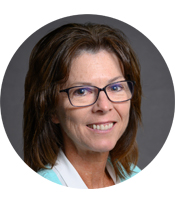Coordinator

Paula Glover, Ph.D.
paulag@macc.edu

Building on the work of the Missouri Mathematics Pathways Task Force and the Dana Center to establish mathematics pathways among Missouri’s institutions of higher education, nine universities and community colleges in the Kansas City area will be supported to move mathematics pathways to normative practice to better prepare students for their future careers. Through a $1.1 million two-year grant from the philanthropic foundation Carnegie Corporation of New York, participating institutions will support a combined population of more than 45,000 students, representing 20–25% of Missouri’s total college and university enrollment.
Goals of the Kansas City region-level work include:
For more information about the DCMP’s role in scaling math pathways in the Kansas City area, please read this story. Visit the Missouri/Kansas City area dashboard for announcements, events, and resources.
In 2012, House Bill 1042, also known as Principles of Best Practice in Remedial Education, was signed into law, requiring all Missouri public institutions of higher education to “replicate best practices in remedial education.” Pursuant to this mandate, one best practice identified by the Missouri Department of Education (MDHE) and the Task Force on College and Career Readiness (TCCR) was the alignment of gateway mathematics courses to programs of study. In October 2014, the Missouri Math Pathways Task Force was organized, after Missouri was selected as one of six states to engage with Complete College America and the Charles A. Dana Center for the Building Math Pathways to Programs of Study (BMPPS) initiative.
The state was also selected to continue its math pathways work as part of the Dana Center's Mathematics Pathways to Completion project, which launched in late 2015. Through this project, Missouri continues to work towards full implementation of its task force recommendations.
| Name | Title | Institution |
| Nakhle Asmar | Department Chair and Professor of Mathematics | University of Missouri - Columbia |
| Trish White | Lead Mathematics Instructor | Ozarks Technical Community College |
| Briehan Barron | Mathematics Faculty | State Technical College of Missouri |
Click Expand button to view all Math Pathways Task Force members.
| Name | Title | Institution |
| JD Herdlick | Mathematics Instructor | East Central College |
| William O. Bray | Chair of Mathematics Department | Missouri State University |
| Rich Christianson | Professor of Mathematics | St. Charles Community College |
| Shahla Peterman | Teaching Professor | University of Missouri–St. Louis |
| Jonathan Corbett | Associate Professor of Mathematics | Harris-Stowe State University |
| Mark Eriksson | Mathematics Faculty | Three Rivers Community College |
| David Garth | Professor of Mathematics | Truman State University |
| Kim Granger | Professor of Mathematics | St. Louis Community College |
| Jennifer Hegeman | Associate Professor of Mathematics | Missouri Western State University |
| Kevin Hopkins | Mathematics Chair | Southwest Baptist University |
| Cheryl Ingram | Chair of Mathematics and Physical Sciences Division | Crowder College |
| Kerry Johnson | Chair of Mathematics Department | Missouri Southern State University |
| Stephanie Van Rhein | Lecturer | University of Missouri–Kansas City |
| Lauren Kieschnick | Mathematics Faculty | Mineral Area College |
| Phoebe McLaughlin | Professor of Statistics and Mathematics | University of Central Missouri |
| Kimberly Miller | Chair of Mathematics Division | State Fair Community College |
| Bill Morgan | Mathematics Faculty | Metropolitan Community College |
| Michael Orf | Assistant Dean of Academic Affairs | Missouri State University West Plains |
| Jerry Priddy | Professor of Mathematics | Central Methodist University |
| Skyler Ross | Associate Professor of Mathematics | Jefferson College |
| V.A. Samaranayake | Curator’s Teaching Professor of Mathematics and Statistics, and Director of Graduate Studies | Missouri University of Science and Technology |
| Kaitlyn Schwartze | Instructor of Mathematics | Lincoln University |
| Suzanne Tourville | Professor of Computer and Math Sciences | Columbia College |
| Chip Sharp | Director of Mathematics | Department of Elementary and Secondary Education |
| Csilla Tasi | Mathematics Instructot | Northwest Missouri State University |
| Tracy Welch | Mathematics Faculty | North Central Missouri College |

The Missouri Math Pathways Task Force (MMPT) was charged to explore options and make recommendations that would significantly increase the percentage of students completing degree programs and student success rates in gateway mathematics courses without compromising the integrity of mathematics instruction. Also, the task force considered the effectiveness of college algebra and other entry-level college courses to evaluate how seamlessly existing mathematics courses transfer between institutions.
Through faculty-driven discussions from math faculty at all public institutions, MMPT issued its task force report, Report of the Missouri Mathematics Pathways Task Force on Building Math Pathways into Programs of Study, in June 2015view full resourceView Full ResourceDownloadFile.
In Fall 2017, 13 two-year institutions and 12 four-year institutions committed to implement mathematics pathways in Fall 2018. See Summary of Institutional Commitments for Missouriview full resourceView Full ResourceDownloadFile for more information about who committed and institutional expectations to implement mathematics pathways.
In the early stages of implementing mathematics pathways reforms across multiple campuses, leaders strategically and authentically engaged faculty, directly addressing their concerns and empowering the people on the front lines to work towards the institution’s vision.

Select a state to learn more about how local leaders are setting a vision for math pathways or read an analysis of math pathways work across multiple states.